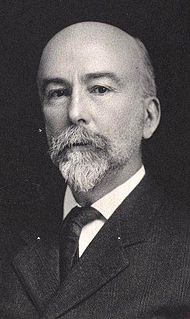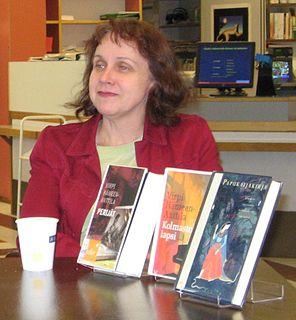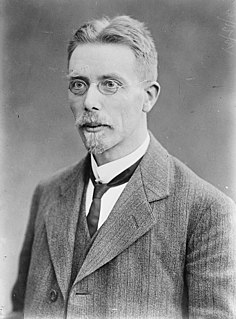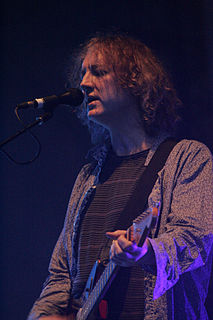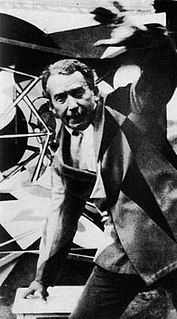A Quote by Stanislaw Lem
Skepticism is like a microscope whose magnification is constantly increased: the sharp image that one begins with finally dissolves, because it is not possible to see ultimate things: their existence is only to be inferred.
Related Quotes
Know that the difficulties which lead to confusion in the question what is the purpose of the Universe or of any of its parts, arise from two causes: first, man has an erroneous idea of himself, and believes that the whole world exists only for his sake; secondly, he is ignorant both about the nature of the sublunary world, and about the Creator's intention to give existence to all beings whose existence is possible, because existence is undoubtedly good.
The very foundation of our science is only an inference; far the whole of it rests an the unprovable assumption that, all through the inferred lapse of time which the inferred performance of inferred geological processes involves, they have been going on in a manner consistent with the laws of nature as we know them now.
Fox opposes a Syria peace plan because its modus operandi is to foment dissent in the form of a relentless and irrational contrarianism to Barack Obama and all things Democratic, to advance its ultimate objective of creating a deliberately misinformed body politic whose fear, anger, mistrust, and discontent is the manna upon which it sustains its parasitic succubus-like existence.
The Witness is a huge step forward, and it is a necessary and important step in meditation, but it is not ultimate. When the Witness or the soul is finally undone, then the Witness dissolves into everything that is witnessed. The subject/object duality collapses and there is only pure nondual awareness, which is very simple, very obvious.
Sören Kierkegaard has another answer: human existence is possible as existence not in despair, as existence not in tragedy; it is possible as existence in faith... Faith is the belief that in God the impossible is possible, that in Him time and eternity are one, that both life and death are meaningful.
It is a mistake to talk about the artist looking for his subject. In fact, the subject grows within him like a fruit and begins to demand expression. It is like childbirth. The poet has nothing to be proud of. He is not master of the situation, but a servant. Creative work is his only possible form of existence, and his every work is like a deed he has no power to annul. For him to be aware that the sequence of such deeds is due and ripe, that it lies in the very nature of things, he has to have faith in the idea; for only faith interlocks the system of images for which read system of life.
What is earthly happiness? that phantom of which we hear so much, and see so little; whose promises are constantly given and constantly broken, but as constantly believed; that cheats us with the sound instead of the substance, and with the blossom instead of the fruit. Like Juno, she is a goddess in pursuit, but a cloud in possession.
When I started, the music I would be drawn to would be heavy metal and new wave like Black Sabbath - things that seemed more shocking - and then, of course, eventually I would find bands and writers who were laying things out very clearly and whose words felt very sharp to the touch and sharp to your feelings.
Writing wasn't easy to start. After I finally did it, I realized it was the most direct contact possible with the part of myself I thought I had lost, and which I constantly find new things from. Writing also includes the possibility of living many lives as well as living in any time or world possible. I can satisfy my enthusiasm for research, but jump like a calf outside the strict boundaries of science. I can speak about things that are important to me and somebody listens. It's wonderful!
The work ... was ... so blinding that I could scarcely see afterwards, and the difficulty was increased by the fact that my microscope was almost worn out, the screws being rusted with sweat from my hands and forehead, and my only remaining eye-piece being cracked... Fortunately invaluable oil-imraersion object-glass remained good.
I found it possible to observe at least the superficial capillaries of muscles both in the frog and in mammals through a binocular microscope, using strong reflected light as a source of illumination. Resting muscles observed in this way are usually quite pale, and the microscope reveals only a few capillaries at fairly regular intervals.
Indeed, all things move, all things run, all things are rapidly changing. A profile is never motionless before our eyes, but it constantly appears and disappears. On account of the persistency of an image upon the retina, moving objects constantly multiply themselves; their form changes like rapid vibrations, in their mad career. Thus a running horse has not four legs, but twenty, and their movements are triangular.


